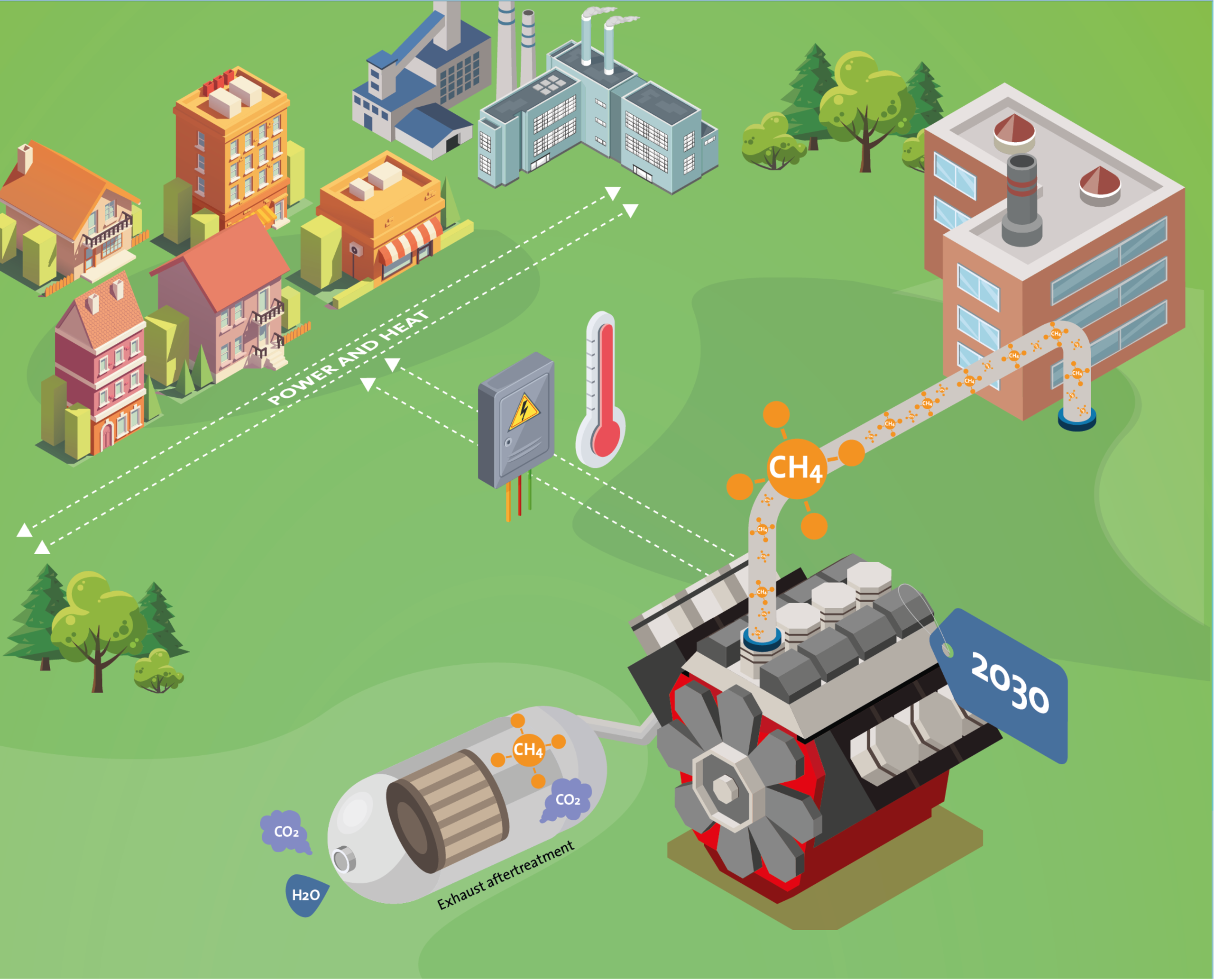Mission 7
For methane slip from gas engines, technological solutions will be available by the end of the decade at the latest, so that there will no longer be any relevant climate-damaging effects.
Gas engines are playing an increasingly important role, especially in shipping and stationary power and heat generation. In the latter application, gas engines are of central importance, particularly in the context of the energy transition and the decision to phase out coal, because they can be operated particularly flexibly. Thus, they are able to supplement the fluctuating electricity supply from renewable energies in a targeted manner when the demand for electricity is constant (see Mission 2). In relation to a unit of energy produced, the direct CO2 emissions of natural gas are about 40% lower than those of coal.
In shipping, liquefied natural gas (LNG) could replace the heavy oil still in use today in the short and medium term in an environmentally and climate-friendly way. Depending on the engine technology used, LNG produces up to 21% fewer greenhouse gases than conventional fossil fuels and significantly fewer harmful emissions such as nitrogen oxides (NOx), particulate matter (PM) and sulfur.
Regardless of where gas is used as a fuel or propellant, its main component is always methane (CH4), a colorless, odorless, combustible gas. Compared to CO2, methane has a significantly higher global warming potential and must therefore be closely scrutinized. To prevent the climate benefit associated with the use of gas from tipping into the negative, methane emissions along the entire gas value chain – from extraction in the gas field to transport in pipelines as well as distribution networks and storage to use - must be minimized or completely avoided as far as possible.
As part of this value chain, the industrial engine sector accepts its share of responsibility for reducing methane emissions. In the case of internal combustion engines, there are various design causes that can lead to unburned gas and thus methane escaping from the engine (so-called methane slip). Depending on the engine concept, this slip can be negligible or reach relevant dimensions. For efficiency reasons alone - methane slip also means the loss of valuable fuel – it is a central goal of every engine manufacturer to minimize this slip. The internal engine measures that reduce the design-related methane slip as far as possible include optimized valve control, combustion chambers with optimized designs and optimized combustion processes that aim to achieve the most complete possible combustion of the fuel. Considerable progress has already been made in this area in recent decades, as reflected among other things in the steadily increasing efficiency of engines. In the future, the admixture of hydrogen to natural gas, which plays an important role on the way to a hydrogen world (more on this in Mission 8), could further contribute significantly to internal engine methane reduction, because the reactive gas can promote complete combustion in the engine.
For those cases in which methane slip cannot be reduced by in-engine measures to a level from which there are no longer any relevant climate-damaging effects, the engine industry is conducting intensive research into extra-engine measures that can then reduce methane slip to a harmless level. The most promising solution here, which also meets the operating conditions of modern gas engines in marine and stationary applications, is the methane oxidation catalyst. Due to the special chemical properties of methane, particularly high temperatures are required for its oxidation. Catalyst development and the selection of a suitable catalyst material are therefore much more difficult than is the case for other pollutants (see Mission 6). Nevertheless, after many years of intensive research, both in precompetitive joint research and in corporate R&D, the breakthrough seems within reach. The companies in the engine sector will ensure that by the end of the decade methane slip will have been minimized to such an extent that there will no longer be any relevant climate-damaging effects from it.


